15 December 2022
Congratulations to Austin Hardcastle for receiving the 2022 Rodney Beames Award for the project Hydraculture! This year two High Commendations have also been awarded to Spencer Caon for Distilling Agriculture and Elissa Stapleton for The Shift.
The Rodney Beames Award was established in 2000 as an annual award to recognise South Australian Landscape Architect Rodney Owen Beames.
The prestigious Rodney Beames Award is an initiative of the Australian Institute of Landscape Architects - South Australia (AILA SA) and HASSELL focused on the promotion and development of the excellence of art in landscape architecture, recognising the commitment and interests of Rodney Beames.
2022 Rodney Beames Award Winner - Austin Hardcastle

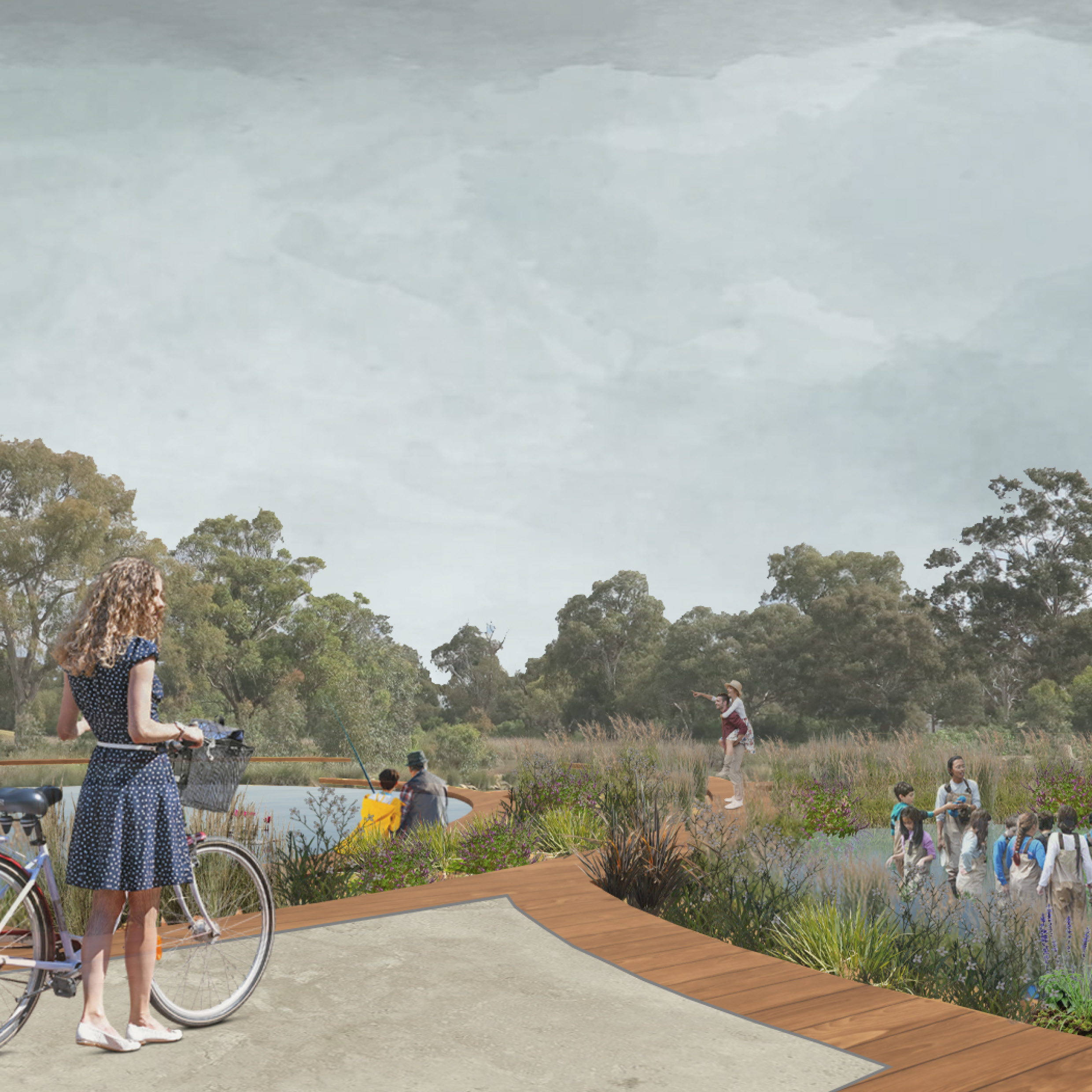
The wetland concept captures and filters surface runoff from across the site in a series of ponds before discharging water into the production zone, where aquatic livestock including freshwater fish and yabbies can be raised, demonstrating how the wetland has the potential to become an urban agricultural site beyond the typical use of irrigation.
Hydraculture
Situated within the University of Adelaide’s Waite Campus, Hydraculture is a series of projects which investigates the potential to engage with water more sensibly for urban agriculture, while also improving the local riparian ecosystems of the adjoining Brown Hill Creek and Patawalonga Catchments. In Australia, 60% of freshwater resources are consumed by the agricultural industry annually, and with the need to produce more food to sustain a growing population over the coming decades and the prospect of a changing climate causing prolonged periods of drought and more intense rainfall events, it is necessary to investigate alternative sources of water for agricultural use. Each of the three interventions is located within a different district of the bequest, showcasing multiple methods of capturing, utilising and filtering water across different landscape typologies including the plains, urban and foothills. These projects aim to demonstrate that by treating runoff as a resource rather than as a problem, we can not only create healthier water sources for urban agriculture, but we can also improve local riparian ecologies and lead the way towards more sustainable future.

In the university campus, a series of terraced rain gardens and biofiltration beds transform an existing carpark and courtyard space into a productive urban agricultural zone, which utilises captured runoff from the streets and rainwater from the roofs of surrounding buildings to produce a series of salad and market garden crops, while also creating an engaging social space for students and staff.
View more project details here.
CITATION
‘Hydraculture’ is an exemplary, forward thinking project that tackles stormwater and runoff as a critical resource in South Australia’s food and wine industry.
The project proposes three climate-positive, contextual and site-responsive typologies inspired by multiple methods of capturing, storing, using and filtering water. Each typology integrates the local riparian ecologies of the Patawalonga catchment in an eloquent, systemic and beautiful way.
The lower reaches of the Waite Campus features a wetland inspired by rain droplets creating capillary waves, treating water for agricultural use and providing much needed habitat and biodiversity.
Tackling built up areas, the Urban Typology embraces capturing and treating building and road run off, cultivating market vegetables in a series of terraced rain gardens and biofiltration beds whilst creating an engaging social space in an otherwise utilitarian area.
Embracing the upper reaches of the Waite Campus, the Hills Typology harvests water inspired by the work of Yeomans with his ‘keyline’ method, utilising the existing site conditions to distribute water more evenly across the site with a sensitively designed series of boardwalks and viewing platforms.
Austin’s Hydraculture project sets a new standard for landscape architecture and enquiry, using sound analysis and design scenarios to create a series of thoughtful, engaging and workable solutions addressing food security, Australia’s climate and biodiversity loss emergency and, in his own words, to ‘do more with less’.
2022 Rodney Beames Award High Commendation - Spencer Caon
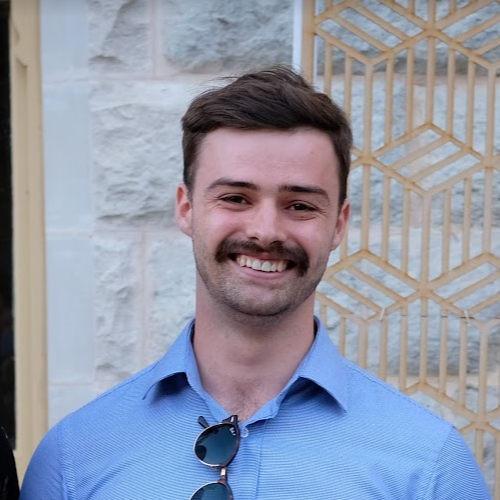
Distilling Agriculture
Developing a self-sustaining gin distillery and productive cultural landscape for Waite Campus
The gin and craft spirits industry is a rapidly growing one, and whilst the economic and social benefits are well documented, large scale environmental regulations are not common, and consumers are often not aware of the scale of inputs that are required to produce their favourite tipple.
The proposal looks to integrate the history of gin into a cultural landscape where visitors can immerse themselves in the rich history of the variable spirit. All botanicals grown to be used in distillation, and industrial programs maximise outputs, whilst minimizing outside inputs and waste products.
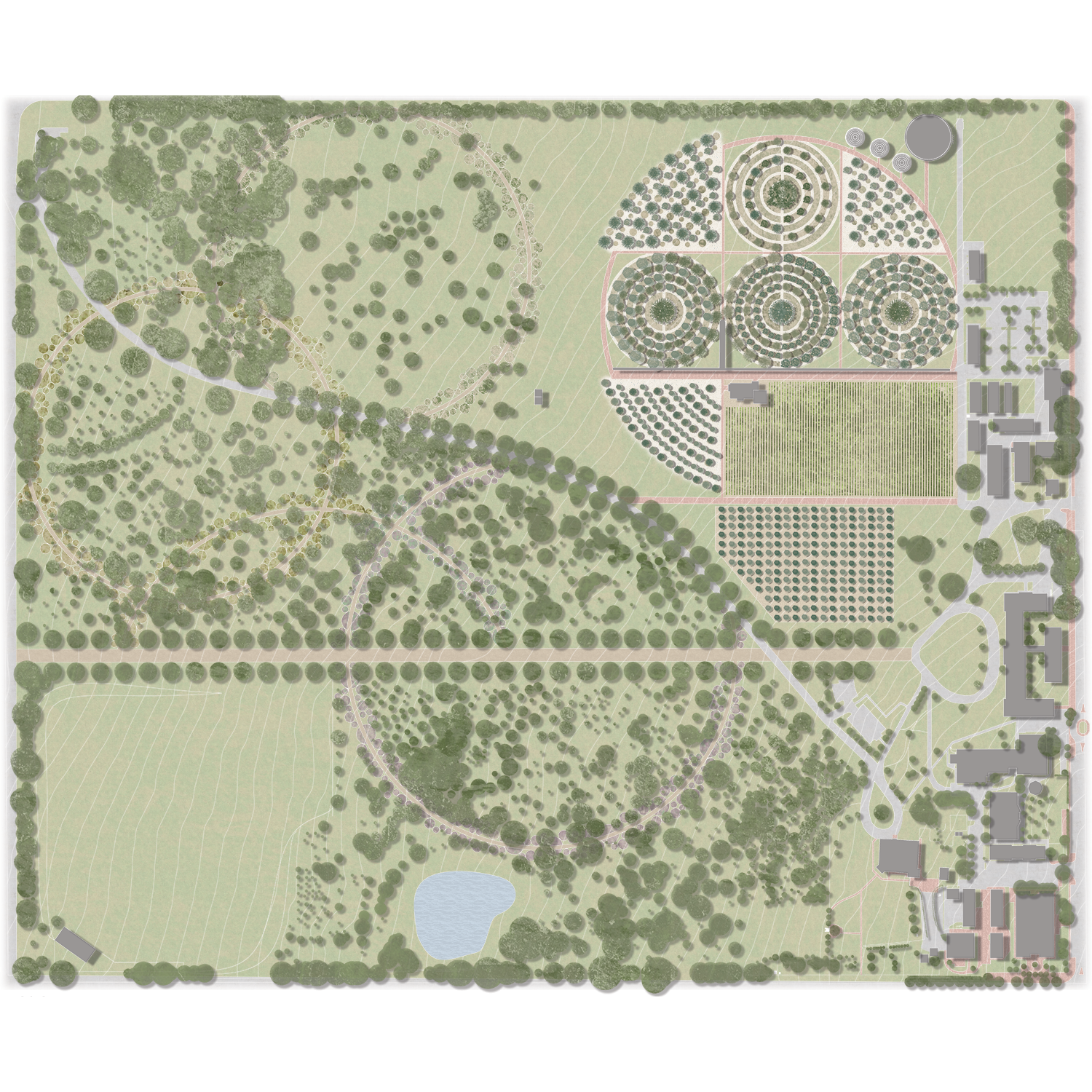
Proposed Site Masterplan
CITATION
‘Distilling Agriculture’ proposes an ambitious self-sustaining gin distillery and productive cultural landscape for the Waite Campus, which recognises the significant economic benefit and tourism impact of the wine and spirits industry to the State and is highly commended.
The clear design principles support a contemporary and sustainable interpretation of an economic botanic gardens. A concept that can help us better understand the importance plants have in our lives, learning from the past, recognising the challenges of the present and working towards a brighter future.
Spencer cleverly integrates the history of gin making, agriculture, tourism and industry weaving together his knowledge of spirit production with his architectural, urban and landscape design skills.
The jury commends his multidisciplinary approach and was inspired by the potential he has to inspire future students into the design professions.
View more project details here.
2022 Rodney Beames Award High Commendation - Elissa Stapleton
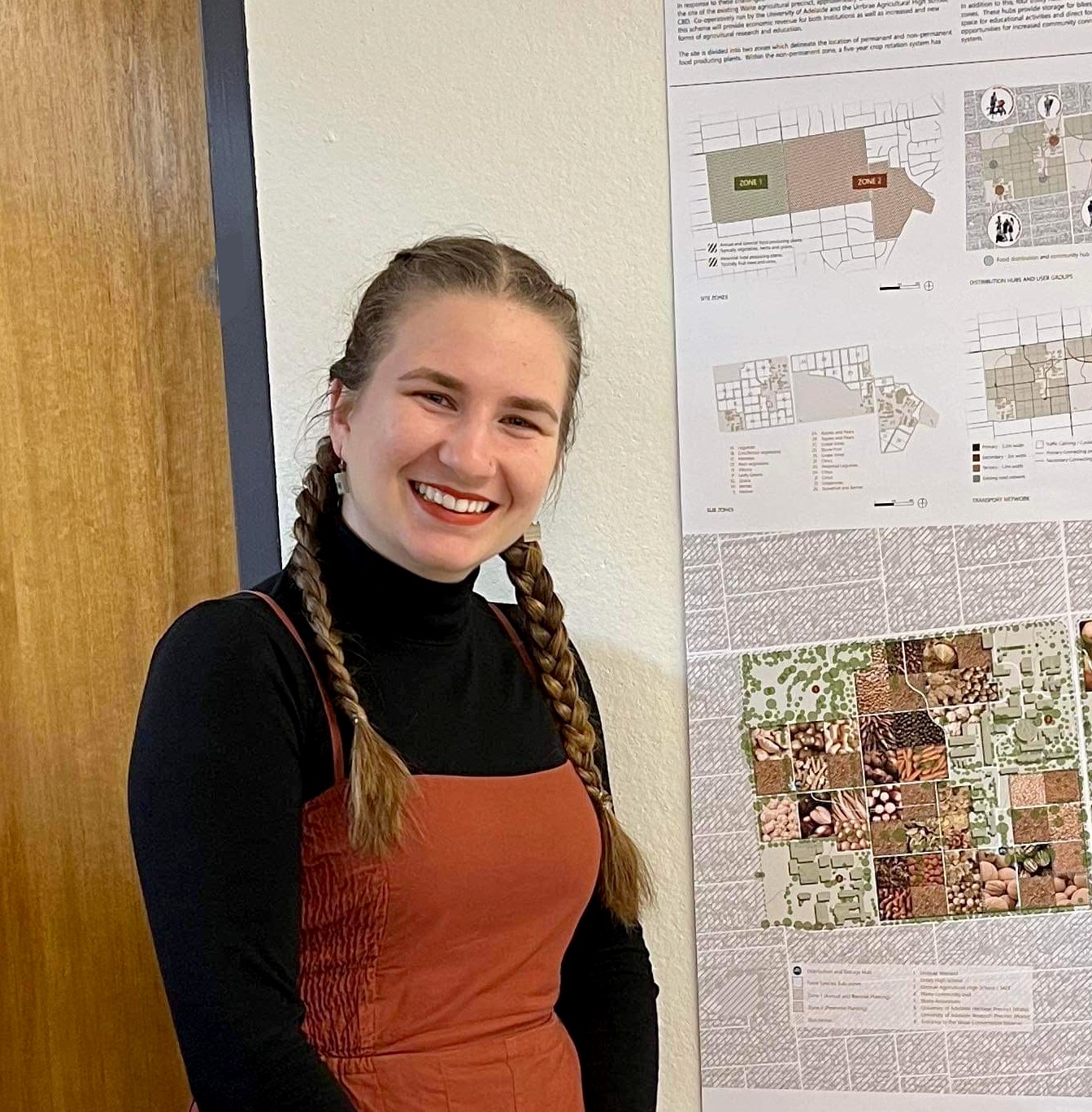
The Shift
‘The Shift’ offers a model for commercial and research-based food production located on the site of the existing Waite precinct (Kaurna land), with the intention of being adapted and expanded to other pockets of metropolitan Adelaide and further afield. Based around an integrated site system of bike transport, bio-waste recycling and crop rotation, this re-designed campus precinct demonstrates a shift in approaches to local food security and climate resilience.
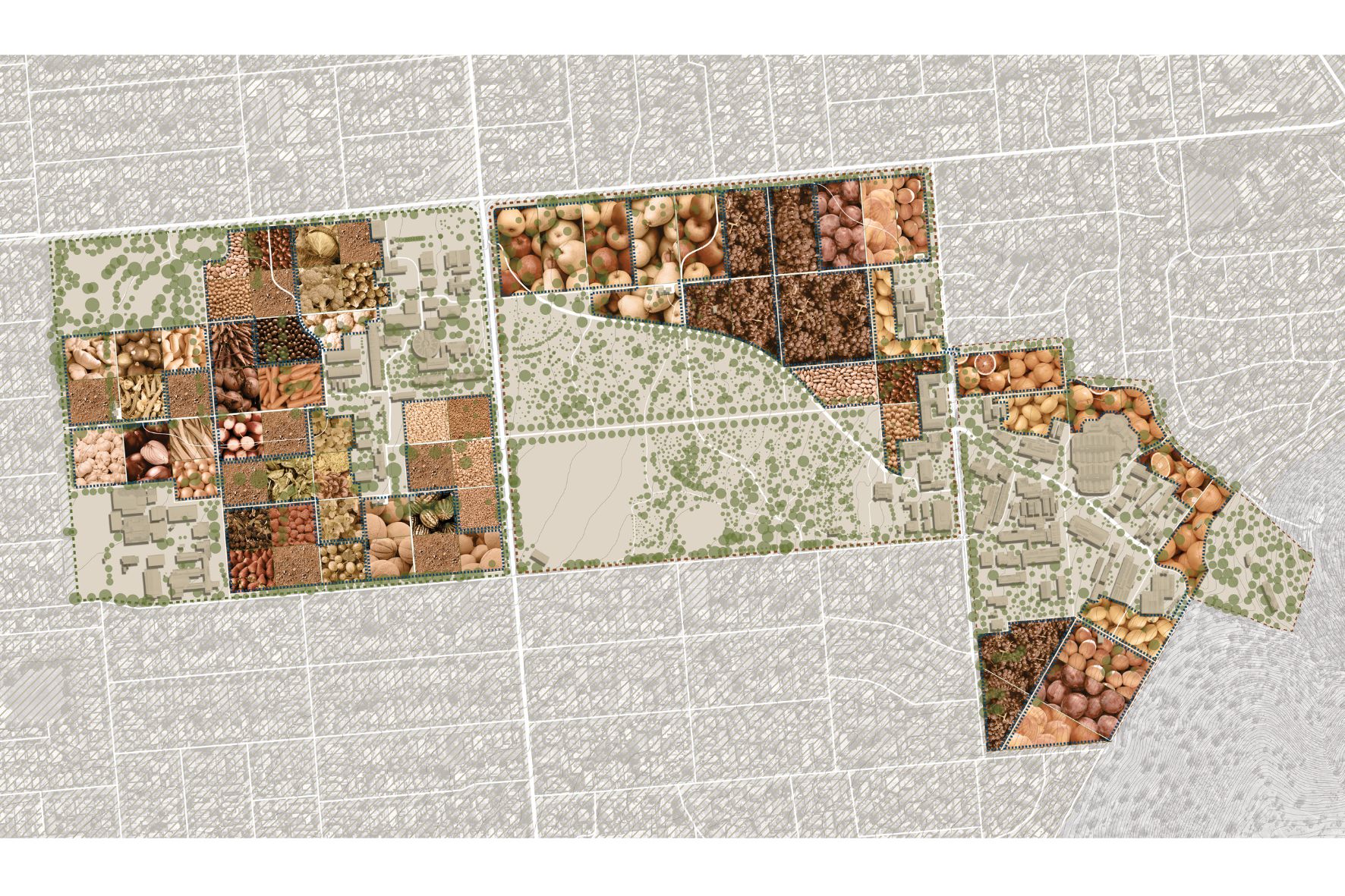
Site Masterplan
CITATION
‘The Shift’ is an inspiring proposition challenging current ideology of food production in metropolitan cities. Stapleton’s vision to reimagine food production as a contributor to Australia’s environmental and social sustainability resilience is highly commendable.
With a clear understanding of natural systems, technology and community, Stapleton’s concept demonstrates how landscape architects can engage with these systems to design for a better future.
Stapleton’s engagement with community groups and local businesses has provided her with an integral understanding of the surrounding environment through which her scheme is contextualised.
The jury commends Stapleton’s approach to embedding social infrastructure into her food production model of the future and as well as her ability to challenge current processes and thinking.
View more project details here.
Daniel Bennett
AILA SA President and 2022 Rodney Beames Jury Chair